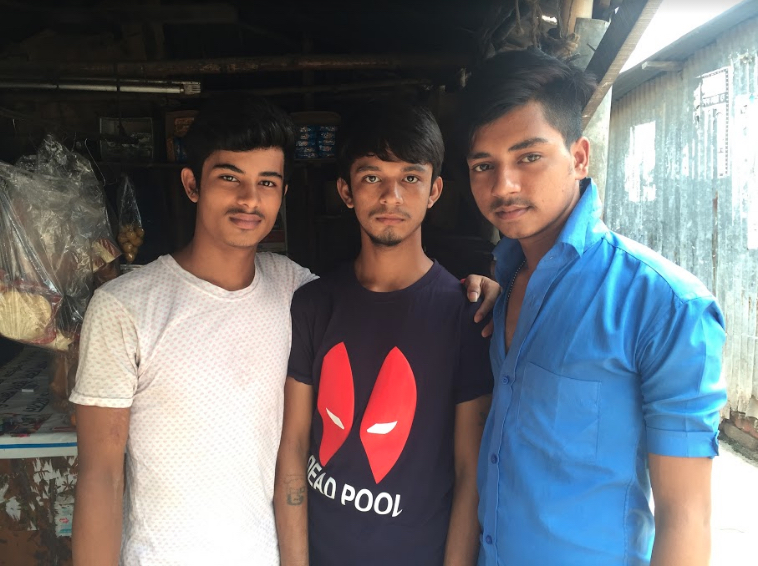Shujon* is a 19-year-old man living with his mother in Bhashantek, an urban slum in Mirpur, Dhaka. His father left his mother when he was a child, leaving him with too many responsibilities and unable to cope. He feels depressed because of the expectations projected on him by his family and peers. Recently he broke up with his girlfriend, because her parents wanted her to get married, but Shujon was not ready. “If I married her now, I would have to be a rickshaw puller, and that won’t make us enough money.” He admits that sometimes he feels confused and doesn’t have anyone to talk to, which takes a toll on his mental health.
To our surprise, when we explained to Shujon that the research project we were conducting would examine the physical and mental wellbeing of young men just like himself, he was immediately interested to speak to us. His eagerness was probably a reflection of the fact that in Bangladesh there is little to no attention given to mental health education, particularly related to sexual and reproductive health (SRH).
Due to shame and stigma, there is a lack of comprehensive SRH education in Bangladesh. Although several successful interventions exist around family planning for married couples, SRH education is still limited for others, particularly the target group for this research project: young vulnerable men who live in urban slums and engage in risky sexual behavior. While this study will also detect exactly which types of behavior are involved, similar studies in Africa show that risky behavior is influenced by one’s social environment.
Currently Dhaka is one of the fastest growing megacities in the world. By 2025, the UN predicts Dhaka will be home to more than 20 million people. As the population of the city grows, so will the population and size of the slums. Thus it is very important to make sure the wellbeing, including health of men in these slums are attended to just as much as women and adolescents. Generally, SRH knowledge of slum dwellers in Bangladesh is very low and they have a higher probability of being confronted with early marriage, drugs and violence.
This research project aims to identify the spectrum of risks and health issues affecting other young men like Shujon living in urban slum. Psychodrama (a group psychotherapy method) would then be used as a “transformative intervention” to help participants discover alternatives to the choices they would usually make. Psychodrama uses role-playing, dramatisation, and self-presentation to explore and gain insight into one’s life, incorporating theatre and conducted in groups under a licensed trainer, educator and practitioner.

Since psychodrama is a very new concept in Bangladesh, we want to adapt this therapeutic approach and create an innovative and interactive educational tool to see if it can be used as new form of health education. It will engage young men to explore existing and alternative attitudes towards their own and their peer’s health and relationships. The hope is to use psychodrama can help these young men evaluate their decision-making process so as to decrease the risky-behaviors they engage in which may adversely affect their health.
“SRH education for young men, particularly those from vulnerable communities like urban slums, is a neglected issue,” said Dr Malabika Sarker (Professor and Director of Research at JPGSPH) who is leading the study. “An innovative approach that blends traditional methods of mental health counseling and SRH education with a more humane touch like psychodrama could help reach this population more effectively.”
*Note: Name has been changed for anonymity purposes.
This blog was written by Rafee Muhammad Tamjid, a research assistant at the BRAC School of Public Health.
5 Comments